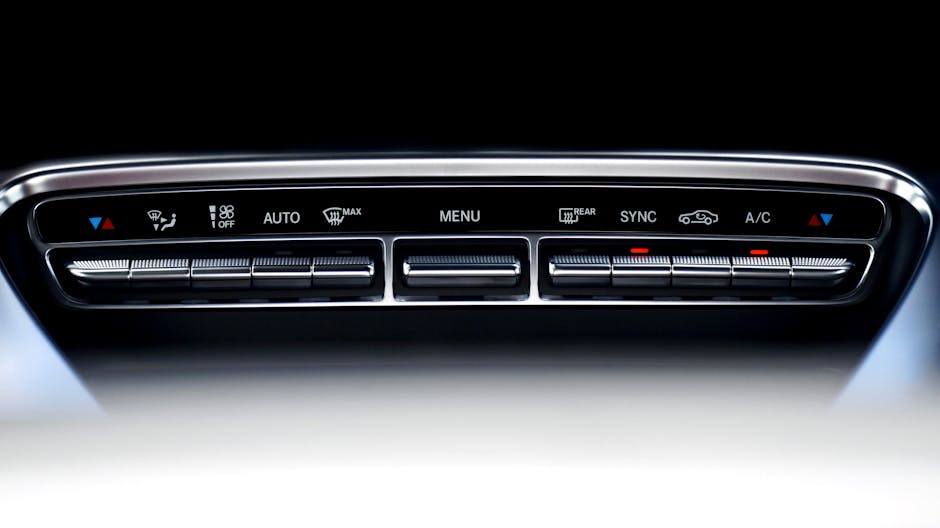‘Vastly disproportionate’: These drivers get a whopping fine for swearing - Related to view, drivers, fine, whopping, these
Renewables generated 24.2% of US electricity in 2024 – EIA data

Renewables increased their output by almost 10% and provided nearly a quarter of US electrical generation in 2024, (EIA) data.
Solar remained the US’s fastest-growing source of electricity in 2024. Utility-scale and “estimated” small-scale ([website], rooftop) solar combined increased by [website] in 2024 compared to the same period in 2023, , which reviewed EIA’s “Electric Power Monthly” analysis data.
Utility-scale solar thermal and photovoltaic expanded by 32%, while small-scale solar increased by [website] Together, solar was nearly 7% ([website] of total US electrical generation for the year.
In December alone, electrical generation by utility-scale solar expanded by 42% compared to December 2023.
Small-scale solar (systems <1 MW) accounted for [website] of all solar generation and provided [website] of the US electricity supply in 2024. In fact, small-scale solar PV generates over five times more electricity than utility-scale geothermal.
The electrical output of US wind farms in 2024 grew by [website] year-over-year. Wind remains the largest source of electrical generation among renewable energy insights, accounting for [website] of the US total.
Wind and solar combined provided more than [website] of US electrical generation during 2024. The mix of all renewables – wind, solar, hydropower, biomass, geothermal – provided [website] of total US electricity production in 2024 compared to [website] of electrical output a year earlier.
Between January and December, electrical generation by renewables grew by [website] compared to the same period the year before – nearly three times the growth rate of natural gas ([website] and over 10 times that of nuclear power ([website].
In December alone, electrical generation by renewables grew by [website] compared to December 2023.
Wind and solar together produced [website] more electricity than coal and came close to matching nuclear power’s share of total generation ([website] vs. [website].
The mix of renewables reinforced their position as the second largest source of electrical generation, behind only natural gas.
“Renewable energy information now provide a quarter of the nation’s electricity,” mentioned the SUN DAY Campaign’s executive director, Ken Bossong. “Consequently, the rash efforts of the Trump Administration to undermine wind, solar, and other renewables will have serious negative consequences for the nation’s electricity supply and the economy.”.
If you live in an area that has frequent natural disaster events, and are interested in making your home more resilient to power outages, consider going solar and adding a battery storage system. To make sure you find a trusted, reliable solar installer near you that offers competitive pricing, check out EnergySage, a free service that makes it easy for you to go solar. They have hundreds of pre-vetted solar installers competing for your business, ensuring you get high quality solutions and save 20-30% compared to going it alone. Plus, it’s free to use and you won’t get sales calls until you select an installer and share your phone number with them.
Your personalized solar quotes are easy to compare online and you’ll get access to unbiased Energy Advisers to help you every step of the way. Get started here. –trusted affiliate link*.
Supercars often push the bounds of design with brash styling and purpose-driven aerodynamic elements. For those who prefer a more graceful y......
The 2025 Volkswagen [website] has been priced for Australia ahead of customer deliveries beginning mid-year – almost 18 months after the electric SUV was f......
Volvo continues to tease information about the electric ES90 sedan ahead of its reveal next week, this time detailing its range estimate and charging ......
View Exterior Photos of the 2025 Mercedes-Benz G580

The [website] battery pack is an integral part of the frame. While the G580's frame is much different than the gas-powered models', its body mounting points are the same.
The government says it is mulling the idea of introducing a vehicle congestion charg......
Costo members receive a range of benefits beyond the opportunity to buy cheese in bulk. You can get deals on travel, gas, eyeglasses, prescriptions, a......
Let's be real for a second: nobody wants to sit around and wait hours and hours for their electric vehicle to charge. The fear of long charging times,......
‘Vastly disproportionate’: These drivers get a whopping fine for swearing

"This also raises a fundamental question: where does the money from these fines go? The lack of transparency only amplifies concerns and undermines confidence in the system. Surely the negative impressions surrounding these penalties far outweigh the impact of any language lapse," the statement goes on further to say.
It still offers competitive cabin space with its 2995 wheelbase (space between front and rear axles) – six millimetres longer than the SWB (short whee......
The 2025 Polestar 3 is one of those cars that will require a tutorial before you leave the dealer lot. That can make it interest......
The rationalisation of RON 95 petrol that will be carried out by mid-year will feat......
Market Impact Analysis
Market Growth Trend
| 2018 | 2019 | 2020 | 2021 | 2022 | 2023 | 2024 |
|---|---|---|---|---|---|---|
| 8.3% | 10.0% | 10.5% | 11.6% | 12.3% | 12.7% | 12.8% |
Quarterly Growth Rate
| Q1 2024 | Q2 2024 | Q3 2024 | Q4 2024 |
|---|---|---|---|
| 10.9% | 11.7% | 12.4% | 12.8% |
Market Segments and Growth Drivers
| Segment | Market Share | Growth Rate |
|---|---|---|
| Connected Cars | 35% | 14.2% |
| Autonomous Driving | 22% | 18.5% |
| EV Technology | 28% | 21.9% |
| Telematics | 10% | 9.7% |
| Other Automotive Tech | 5% | 6.3% |
Technology Maturity Curve
Different technologies within the ecosystem are at varying stages of maturity:
Competitive Landscape Analysis
| Company | Market Share |
|---|---|
| Tesla | 16.9% |
| Waymo | 12.3% |
| NVIDIA DRIVE | 10.7% |
| Bosch | 9.5% |
| Continental | 7.8% |
Future Outlook and Predictions
The Renewables Generated Electricity landscape is evolving rapidly, driven by technological advancements, changing threat vectors, and shifting business requirements. Based on current trends and expert analyses, we can anticipate several significant developments across different time horizons:
Year-by-Year Technology Evolution
Based on current trajectory and expert analyses, we can project the following development timeline:
Technology Maturity Curve
Different technologies within the ecosystem are at varying stages of maturity, influencing adoption timelines and investment priorities:
Innovation Trigger
- Generative AI for specialized domains
- Blockchain for supply chain verification
Peak of Inflated Expectations
- Digital twins for business processes
- Quantum-resistant cryptography
Trough of Disillusionment
- Consumer AR/VR applications
- General-purpose blockchain
Slope of Enlightenment
- AI-driven analytics
- Edge computing
Plateau of Productivity
- Cloud infrastructure
- Mobile applications
Technology Evolution Timeline
- Technology adoption accelerating across industries
- digital transformation initiatives becoming mainstream
- Significant transformation of business processes through advanced technologies
- new digital business models emerging
- Fundamental shifts in how technology integrates with business and society
- emergence of new technology paradigms
Expert Perspectives
Leading experts in the automotive tech sector provide diverse perspectives on how the landscape will evolve over the coming years:
"Technology transformation will continue to accelerate, creating both challenges and opportunities."
— Industry Expert
"Organizations must balance innovation with practical implementation to achieve meaningful results."
— Technology Analyst
"The most successful adopters will focus on business outcomes rather than technology for its own sake."
— Research Director
Areas of Expert Consensus
- Acceleration of Innovation: The pace of technological evolution will continue to increase
- Practical Integration: Focus will shift from proof-of-concept to operational deployment
- Human-Technology Partnership: Most effective implementations will optimize human-machine collaboration
- Regulatory Influence: Regulatory frameworks will increasingly shape technology development
Short-Term Outlook (1-2 Years)
In the immediate future, organizations will focus on implementing and optimizing currently available technologies to address pressing automotive tech challenges:
- Technology adoption accelerating across industries
- digital transformation initiatives becoming mainstream
These developments will be characterized by incremental improvements to existing frameworks rather than revolutionary changes, with emphasis on practical deployment and measurable outcomes.
Mid-Term Outlook (3-5 Years)
As technologies mature and organizations adapt, more substantial transformations will emerge in how security is approached and implemented:
- Significant transformation of business processes through advanced technologies
- new digital business models emerging
This period will see significant changes in security architecture and operational models, with increasing automation and integration between previously siloed security functions. Organizations will shift from reactive to proactive security postures.
Long-Term Outlook (5+ Years)
Looking further ahead, more fundamental shifts will reshape how cybersecurity is conceptualized and implemented across digital ecosystems:
- Fundamental shifts in how technology integrates with business and society
- emergence of new technology paradigms
These long-term developments will likely require significant technical breakthroughs, new regulatory frameworks, and evolution in how organizations approach security as a fundamental business function rather than a technical discipline.
Key Risk Factors and Uncertainties
Several critical factors could significantly impact the trajectory of automotive tech evolution:
Organizations should monitor these factors closely and develop contingency strategies to mitigate potential negative impacts on technology implementation timelines.
Alternative Future Scenarios
The evolution of technology can follow different paths depending on various factors including regulatory developments, investment trends, technological breakthroughs, and market adoption. We analyze three potential scenarios:
Optimistic Scenario
Rapid adoption of advanced technologies with significant business impact
Key Drivers: Supportive regulatory environment, significant research breakthroughs, strong market incentives, and rapid user adoption.
Probability: 25-30%
Base Case Scenario
Measured implementation with incremental improvements
Key Drivers: Balanced regulatory approach, steady technological progress, and selective implementation based on clear ROI.
Probability: 50-60%
Conservative Scenario
Technical and organizational barriers limiting effective adoption
Key Drivers: Restrictive regulations, technical limitations, implementation challenges, and risk-averse organizational cultures.
Probability: 15-20%
Scenario Comparison Matrix
| Factor | Optimistic | Base Case | Conservative |
|---|---|---|---|
| Implementation Timeline | Accelerated | Steady | Delayed |
| Market Adoption | Widespread | Selective | Limited |
| Technology Evolution | Rapid | Progressive | Incremental |
| Regulatory Environment | Supportive | Balanced | Restrictive |
| Business Impact | Transformative | Significant | Modest |
Transformational Impact
Technology becoming increasingly embedded in all aspects of business operations. This evolution will necessitate significant changes in organizational structures, talent development, and strategic planning processes.
The convergence of multiple technological trends—including artificial intelligence, quantum computing, and ubiquitous connectivity—will create both unprecedented security challenges and innovative defensive capabilities.
Implementation Challenges
Technical complexity and organizational readiness remain key challenges. Organizations will need to develop comprehensive change management strategies to successfully navigate these transitions.
Regulatory uncertainty, particularly around emerging technologies like AI in security applications, will require flexible security architectures that can adapt to evolving compliance requirements.
Key Innovations to Watch
Artificial intelligence, distributed systems, and automation technologies leading innovation. Organizations should monitor these developments closely to maintain competitive advantages and effective security postures.
Strategic investments in research partnerships, technology pilots, and talent development will position forward-thinking organizations to leverage these innovations early in their development cycle.
Technical Glossary
Key technical terms and definitions to help understand the technologies discussed in this article.
Understanding the following technical concepts is essential for grasping the full implications of the security threats and defensive measures discussed in this article. These definitions provide context for both technical and non-technical readers.


